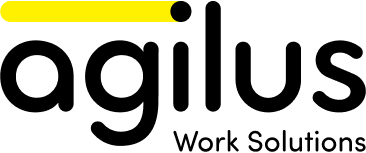And how to avoid a dreaded first day back.
In a culture that still glorifies hustle and staying “on” 24/7, taking vacation can feel like a luxury—or worse, a sign of weakness. But time away from work isn’t just a perk. It’s a necessity.
Today, being constantly connected—even after hours—is often expected. But that always-on mindset comes at a cost. Over time, it erodes focus, drains energy, and chips away at our well-being.
That’s why taking personal time off (PTO) isn’t optional—it’s essential. It supports your mental and physical health, helps restore work-life balance, and actually improves productivity over the long term.
Still not convinced? Consider this: less than half (45%) of Canadian workers used all their vacation days in 2023, according to Expedia’s Vacation Deprivation Report.
If you’ve been putting off your vacation, here are some powerful reminders of why unplugging might be the most productive thing you do all year.
- Breaks Drive Performance: Taking time away from work it’s necessary in order to maintain mental clarity and overall performance. When we step back and allow our minds to rest, we return with renewed focus, it refreshes our decision-making skills and improves creativity. Taking a moment to pause often gives us new and fresh perspectives and solutions that may not have been visible under the constant pressure.
Moreover, taking time away from work it’s just as important as an athlete taking a break from a sport. For example, athletes rely on the physical recovery in order to give their best performance, and just as they need physical recover, professionals need mental recovery in order to stay sharp, motivated and resilient. Regular breaks and time off reduce burnout, support emotional well-being, and lead to a more sustainable work-life balance.
- Vacation Supports Mental and Physical Health: Stepping away from our daily pressures gives our brain a much-needed break, reducing anxiety and symptoms of depression. According to Statistics Canada, in April 2023, 21.2% of employed Canadians reported experiencing very high levels of work-related stress—most commonly caused by heavy workloads and difficulty balancing work and personal life.
Without proper rest, ongoing stress can lead to burnout, lower productivity, and even physical health issues such as headaches, sleep disturbances and a weakened immune system.
- Rest prevents burnout: Burnout doesn’t just affect productivity—it impacts morale and long-term well-being. That’s why rest is a smart investment in sustained performance.
Statistics Canada also reported that in 2023, 8.2% of workers in Canada worked 49 or more hours per week—a sharp increase since the COVID-19 pandemic. Overwork is not a badge of honour; it’s a red flag. Taking time off is not only restorative but it’s also strategic.
- Time off reconnects you with what matters:
Vacations allow you to reconnect with personal interests, relationships, and experiences that fuel happiness and fulfillment. Spending time with loved ones, enjoying a hobby, or simply having time to think without deadlines is an important thing to do. These moments of personal connection are key to overall satisfaction and happiness.
You don’t need to travel far to benefit from time off. A weekend visit with family, a local campaign trip, or exploring a nearby town or other parts of the country can offer the same restorative effects as a vacation abroad. Recharging in ways that matter to you helps restore balance and perspective. These things are important for maintaining a healthy and productive work environment.
Taking time off is essential — but coming back to chaos can make you dread it.
To truly unplug, it helps to prepare for re-entry before you leave. Here are five smart, low-effort ways to make your first day back more manageable:
- Write a quick “welcome back” note to yourself.
Jot down key projects, deadlines, and loose ends. Even a few bullet points can save you from wasting half your first day remembering what you were working on.
- Block 30–60 minutes of re-entry time on your calendar.
This gives you breathing room to check emails, review your schedule, and get settled before meetings or requests start rolling in.
- Set a thoughtful out-of-office message.
In addition to your return date, include a line like: “I’ll be catching up on messages and will respond as soon as I can.” It sets expectations and reduces inbox pressure.
- Close out or delegate any small tasks that could snowball.
Even 2–3 quick wins—like submitting a report, approving a document, or assigning follow-up—can reduce your future workload significantly.
- Tidy up your physical and digital workspace.
Coming back to a clean desk, zero open tabs, or an organized inbox helps you start fresh—and might even extend that post-vacation glow.
By embracing rest as a core part of your workflow, you’re investing in long-term ability to thrive. So, if you’ve been putting off your vacation, consider this your sign: unplugging may be the most productive decision you make this year.
For more nearly 50 years, Agilus has served our candidate and employer networks, connecting job seekers with meaningful opportunities. We place nearly 10,000 job seekers in roles every year in Engineering, Technology, Professional/Office, and Light Industrial roles. Check out or open roles on our job board, create a job alert or build a profile so any of our more than 100 recruitment professionals can find you quickly when a role becomes available. Please follow us on LinkedIn, Facebook, Instagram and X for job-seeking tips and new roles.

